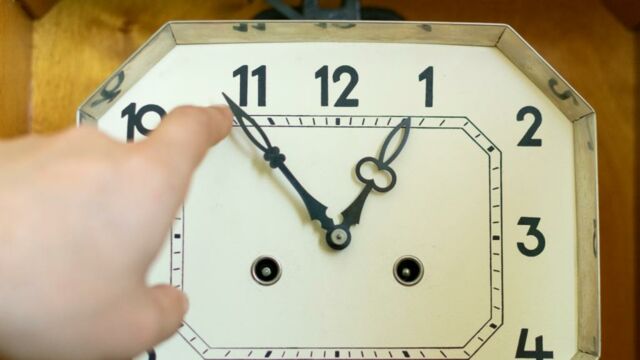The clocks go back on Sunday 29 October, but is Daylight Savings a good idea?

Daylight Savings means we’ll get an extra hour of sleep this Sunday, but some want to scrap this system.
As the weather keeps rudely reminding us, winter is fast approaching. This means we’ll soon be turning our clocks back. On Sunday 29 October, we’ll hop back by one hour at 2am. This is good news for some as we’ll get an extra hour of sleep in. Then, the days will get progressively shorter as the sun sets earlier and earlier until the shortest day of the year, which will be on Friday 22 December in 2023.
Discover our latest podcast
However, not everyone is a big fan of this system, known as Daylight Saving. Some argue it wastes fuel, creates more roads accidents, and is an outdated concept. So, let’s take a look at the pros and cons.
More under this adMore under this adThe benefits of Daylight Saving
Daylight Saving is designed to make the most of the sun during the day, depending on the season. The idea has existed for a long time: a Roman hour, for instance, could last 44mins during winter but 75 in summer. The modern version was first introduced to Britain thanks to a builder named William Willett. The BBC explains:
A lover of open spaces, Willett was horseback riding one summer morning in 1905 when, ruefully, he observed how many curtains remained drawn against the sunlight. A solution occurred to him: why not move the clocks forward before each summer began?More under this adMore under this ad
Willett campaigned tirelessly for this change, but the idea was only accepted and implemented after his death in Britain, during WWI. The major drive for this was a massive coal shortage. As David Stevenson, history professor at the London School of Economics, explains:
Not only was there increased demand to fuel the navy, railways and armaments industry, but Britain had to supply allies whose coalfields were German-occupied, plus thousands of miners had volunteered for service.More under this adMore under this ad
So, the original idea was to make the most of the daylight and save on fuel. In 2019, a YouGov poll did find that the majority of Brits were for the system, but only by a tiny margin: 44% versus 39% who wanted to scrap it.
The disadvantages of Daylight saving
However, the European parliament voted in favour of getting rid of this system in 2019 - a change that was to come into effect in 2021, but has been delayed. Though the idea was originally designed to save fuel, Professor Aoife Foley from Queen’s University Belfast told The Independent that the opposite is true nowadays:
More under this adMore under this adBy simply foregoing the winter DST in October, we save energy because it is brighter in the evening during winter, so we reduce commercial and residential electrical demand as people leave work earlier, and go home earlier, meaning less lighting and heating is needed.
Professor Foley has calculated that households could save over £400 on their electricity bill if the government scrapped Daylight Saving.
More under this adMore under this adFurthermore, The Royal Society for the Prevention of Accidents is also against Daylight Saving, given that turning the clocks back leads to more accidents as more people are driving during dark winter months.
We can’t tell what will happen to this scheme in the future, but for now, we know that the clocks will be turning back on Sunday - so don’t forget!
More under this adMore under this adRead more:
⋙ Here are 5 possible reasons you can't sleep well at night, according to science
⋙ Experts reveal if you should sleep with your windows open at night
⋙ Is too much screen time degrading your mental health?
Sources used:
Independent: When do the clocks change in 2023?
The BBC: The builder who changed how the world keeps time